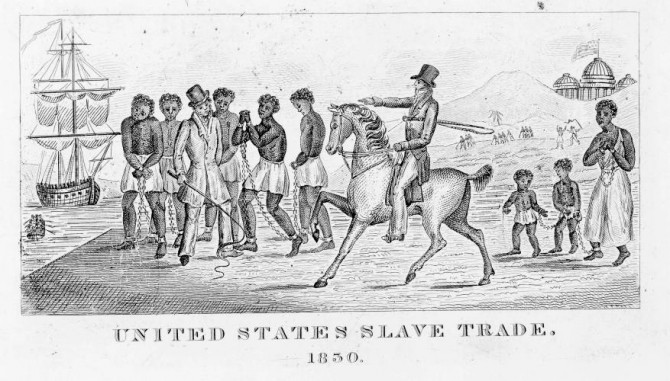‘The Half Has Never Been Told: Slavery and the Making of American Capitalism
Book Review by Susan Grigsby
It seemed to me that the Economist review of The Half Has Never Been Told: Slavery and the Making of American Capitalism was wildly successful. Because while we were all busy smirking, grinning and even laughing at the reviewer, the conversation that the book should have provoked, that The Economist wanted at all costs to avoid, was never discussed. What did The Economist want to avoid talking about?
Back wages, perhaps?
Or perhaps what caused the Panic of 1837?
Or the ingenuity and perseverance of those whose misfortune it was to be enslaved?
Or perhaps it was this:
The idea that the commodification and suffering and forced labor of African Americans is what made the United States powerful and rich is not an idea that people necessarily are happy to hear. Yet it is the truth.
More truth is below
The Half Has Never Been Told:
Slavery and the Making of American Capitalism
By Edward E. Baptist
Published by Basic Books
September 9, 2014
528 pages
In The Half Has Never Been Told, Edward E. Baptist, author, historian and Cornell University associate professor, artfully combines the individual voices of an enslaved population within a broader discussion of the economic and geographic growth of America in the nineteenth century. But mostly, he paints a picture of unrestrained, laissez-faire capitalism. A form of capitalism undreamt of by any but the most ardent Ayn Rand fans. It is this picture of capitalism unbound that The Economist likely does not want us to discuss.
In this story of American slavery, and its intimate connection to American capitalism, Baptist demonstrates how the availability of cheap land, slave labor and a government willing to support it can create huge amounts of wealth. Enough wealth to help fund an industrial revolution.
Using thousands of WPA-era interviews and hundreds of post-Civil War memoirs and autobiographies written by former slaves, he brings to life the giant that he uses as his metaphor and organizing tool. The image of this giant comes from an essay written by Ralph Ellison:
“On the moral level I propose we view the whole of American life as a drama enacted on the body of a Negro giant who, lying trussed up like Gulliver, forms the stage and the scene upon which and within which the action unfolds.”
Baptist takes apart the myths that our society has created to make us more comfortable with our slave-owning past. He begins with the biggest myth of all, that slavery was unprofitable, inefficient, and would eventually die off as it would be unable to adapt and to compete with industrialization.
Sure: …


